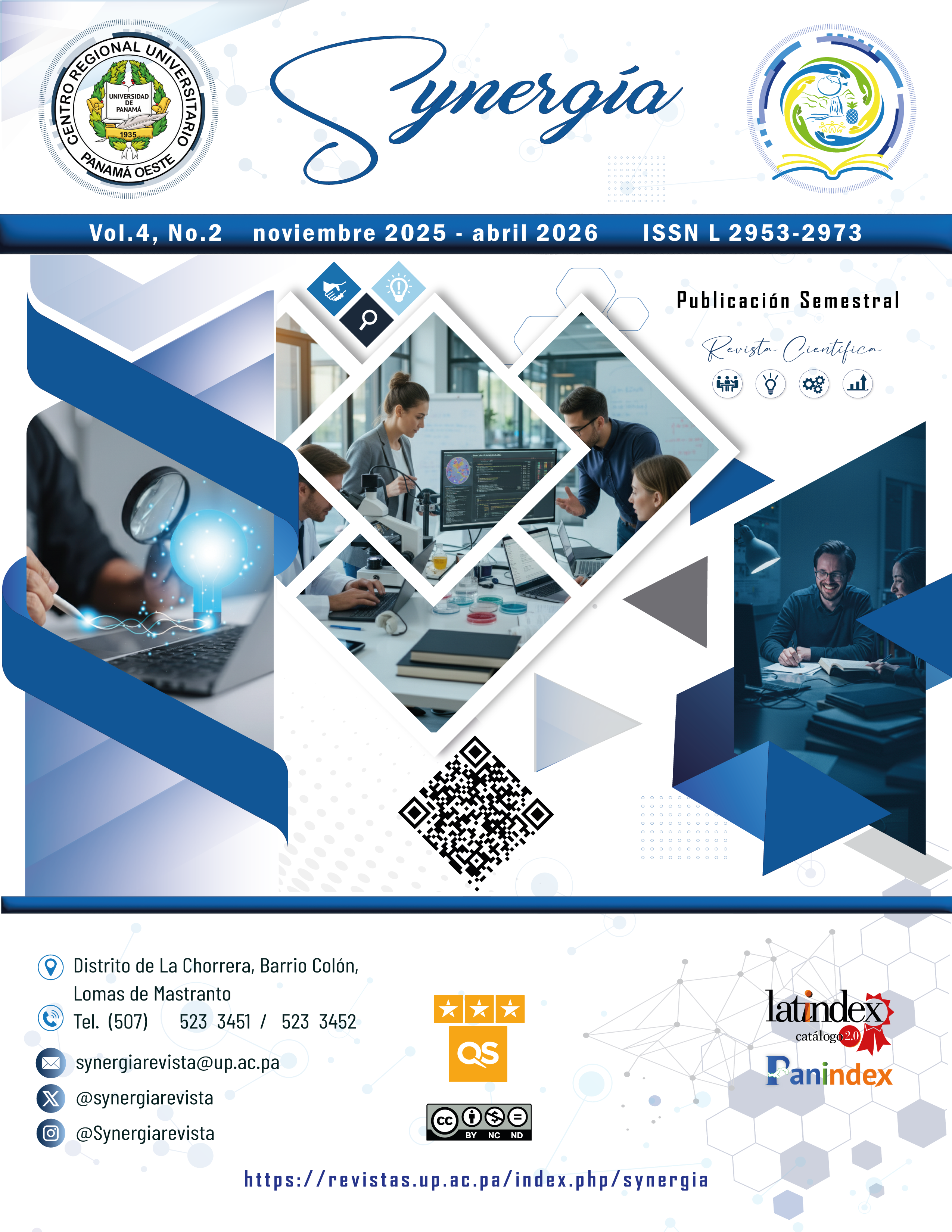

Copyright (c) 2025 Synergía

This work is licensed under a Creative Commons Attribution-NonCommercial-ShareAlike 4.0 International License.
Analyzing and addressing barriers to inclusive education is the fundamental objective of this study. A non-experimental quantitative description approach was implemented with a quantitative methodology. The research population consisted of 103 educators employed at both the Faculty of Education Sciences and the First Cycle General Basic Education Center in Tocumen. Non-probability sampling methods were employed, using a sample size identical to that of the total population. Data was collected through questionnaires containing closed-ended questions arranged according to a Likert scale. Statistical evaluation of the retrieved information was performed using SPSS software to calculate the absolute and relative frequencies of the results. Among other notable findings, more than half (59.2%) of respondents perceived the lack of adequately designed resources and materials as one of the main obstacles hindering curricular adaptation within inclusive education frameworks. Furthermore, more than half (58.3%) cited adverse attitudes among educators toward the inclusion of children with special needs as an additional contributing factor. 71.8% agreed with the use of educational technologies as supplementary aids. Finally, the results highlight the importance of structural and attitudinal interventions, improving teacher training and promoting fair practices. In this way, we are moving toward a more inclusive education system that responds to current challenges through social justice and pedagogical commitment.